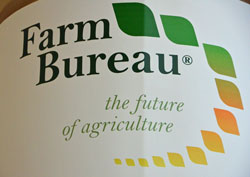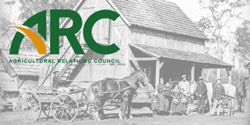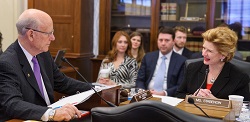The bread wheat genome has now been sequenced. Wheat is one of the most widely grown cereals in the world, and the project will help accelerate global research into crop improvement. The project was led by the International Wheat Genome Sequencing Consortium (IWGSC). Using NRGene’s DeNovoMAGICTM software, the bread wheat variety Chinese Spring genome was assembled.

Wheat Spike © Piotr Majka | Dreamstime Stock Photos
The new data will help speed up the delivery of a high quality reference sequence of the bread wheat genome. Nils Stein, with German-based IPK Getersleben, who co-led the project, explained, “The new bread wheat de novo shotgun assembly made by NRGene represents a major breakthrough for the IWGSC integrated strategy towards delivering a high quality reference sequence for each of the 21 bread wheat chromosomes.”
According to IWGSC, wheat is the staple food for more than 35 percent of the global human population and accounts for 20 percent of all calories consumed throughout the world. To meet future demands of a projected world population of 9.6 billion by 2050, wheat productivity needs to increase by 1.6 percent each year.
Kellye Eversole, IWGSC Executive Director, welcomed the results. “The preliminary results obtained by NRGene are impressive. We have been waiting for a number of years to have a high quality whole genome sequence assembly that would complement our chromosome based strategy and accelerate the delivery of the sequence. Thus, this assembly comes exactly at the right time because it can be integrated with the IWGSC chromosome specific resources developed over the past 10 years (e.g., chromosome shotgun sequences, physical maps, and physical map-based sequencing) to deliver a high quality reference sequence for the wheat genome in less than two years.”
The whole genome assembly data will be integrated with physical-map based sequence data to produce a high-quality, ordered sequence for each wheat chromosome that precisely locates genes, regulatory elements, and markers along the chromosomes, providing invaluable tools for wheat breeders. Results of the whole genome assembly will be presented at several workshops at the Plant & Animal Genome Conference taking place in San Diego in the United States from 9 to 13 January 2016. All data will be available in the IWGSC wheat sequence repository at URGI-INRA.
Curtis Pozniak with the University of Saskatchewan’s Crop Development Centre in Canada added, “This new wheat genome sequence generated by the IWGSC and its partners is an important contribution to understanding the genetic blueprint of one of the world’s most important crops,” said Curtis Pozniak. “It will provide wheat researchers with an exciting new resource to identify the most influential genes important to wheat adaptation, stress response, pest resistance, and improved yield.”
 The 97th annual convention of the American Farm Bureau Federation is about to get officially underway here in not-so-sunny Orlando, Florida. It’s Sunday but it feels like Monday and we have a full day of work ahead of us.
The 97th annual convention of the American Farm Bureau Federation is about to get officially underway here in not-so-sunny Orlando, Florida. It’s Sunday but it feels like Monday and we have a full day of work ahead of us. 










